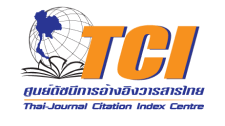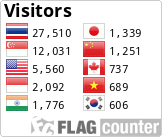Keywords
Adrenal insufficiency, ACTH stimulation test, Cortisol cut-off, Elecsys Cortisol Generation II, Monoclonal antibody assay
Abstract
Introduction: The ACTH stimulation test helps diagnose adrenal insufficiency (AI), with a peak cortisol level above 18 μg/dL indicating normal adrenal function. Monoclonal antibody assays for cortisol measurement suggest a lower threshold of 15 μg/dL, but it remains unclear whether patients with cortisol levels between 15 and 17.9 μg/dL require glucocorticoid replacement therapy (GRT).
Aim: To evaluate clinical outcomes of patients with peak cortisol levels of 15-17.9 μg/dL post-ACTH stimulation test who received or did not receive GRT.
Methods: A retrospective study was conducted in adult patients who underwent ACTH stimulation tests with peak cortisol levels of 15-17.9 μg/dL and had at least 6-month follow-up. Serum cortisol levels were measured by monoclonal antibody assay. GRT decisions and AI diagnoses were determined by endocrine consultants.
Results: Among 148 patients, 114 (77%) did not receive GRT. The mean basal cortisol level was 8.54 μg/dL. Both groups (GRT and non-GRT) had similar baseline characteristics, except for older age in the GRT group. During follow-up, 29 patients (26%) developed hyponatremia, mostly of mild degree. Both groups exhibited similar AI symptoms without severe AI-related hospital admission.
Conclusion: Clinical outcomes in patients with cortisol levels of 15-17.9 μg/dL after ACTH stimulation were similar regardless of GRT use, although some differences in complete blood count existed. GRT may not be necessary for patients within this cortisol range following ACTH stimulation.
References
Melmed Se, Auchus RJe, Goldfine ABe, Rosen CJe, Kopp PAe, Williams RHToe. Williams textbook of endocrinology. Fifteenth edition. ed: Elsevier; 2024.
Bornstein SR, Allolio B, Arlt W, Barthel A, Don-Wauchope A, Hammer GD, et al. Diagnosis and treatment of primary adrenal insufficiency: An endocrine society clinical practice guideline. J Clin Endocrinol Metab. 2016;101:364–89.
Ospina NS, Al Nofal A, Bancos I, Javed A, Benkhadra K, Kapoor E, et al. ACTH stimulation tests for the diagnosis of adrenal insufficiency: Systematic review and meta-analysis. J Clin Endocrinol Metab. 2016;101:427–34.
May ME, Carey RM. Rapid adrenocorticotropic hormone test in practice. Retrospective review. Am J Med. 1985;79:679-84.
Dickstein G, Shechner C, Nicholson WE, Rosner I, Shen-Orr Z, Adawi F, Lahav M. Adrenocorticotropin stimulation test: Effects of basal cortisol level, time of day, and suggested new sensitive low dose test. J Clin Endocrinol Metab. 1991;72:7738.
Javorsky BR, Raff H, Carroll TB, Algeciras-Schimnich A, Singh RJ, Colón-Franco JM, Findling JW. New cutoffs for the biochemical diagnosis of adrenal insufficiency after ACTH stimulation using specific cortisol assays. J Endocr Soc. 2021;5:bvab022.
Kline GA, Buse J, Krause RD. Clinical implications for biochemical diagnostic thresholds of adrenal sufficiency using a highly specific cortisol immunoassay. Clin Biochem. 2017;50:475–80.
Dubey A, Boujoukos AJ. Measurements of serum free cortisol in critically ill patients. Crit Care. 2004;9:E2.
Ueland G, Methlie P, Øksnes M, Thordarson HB, Sagen J, Kellmann R, et al. The short cosyntropin test revisited: New normal reference range using LC-MS/MS. J Clin Endocrinol Metab. 2018;103:1696–703.
Husni H, Abusamaan MS, Dinparastisaleh R, Sokoll L, Salvatori R, Hamrahian AH. Cortisol values during the standard-dose cosyntropin stimulation test: Personal experience with Elecsyscortisol II assay. Front Endocrinol (Lausanne). 2022;13:978238.
Bancos I, Hahner S, Tomlinson J, Arlt W. Diagnosis and management of adrenal insufficiency. Lancet Diabetes Endocrinol. 2015;3:216–26.
Saevik ÅB, Åkerman AK, Grønning K, Nermoen I, Valland SF, Finnes TE, et al. Rapid adrenocorticotropic hormone test in practice. Retrospective review. J Intern Med. 2018;283:190–9.
Ronchetti S, Ricci E, Migliorati G, Gentili M, Riccardi C. How glucocorticoids affect the neutrophil life. Int J Mol Sci. 2018;19.
Schmidt IL, Lahner H, Mann K, Petersenn S. Diagnosis of adrenal insufficiency: Evaluation of the corticotropinreleasing hormone test and Basal serumcortisol in comparison to the insulin tolerance test in patients with hypothalamicpituitary-adrenal disease. J Clin Endocrinol Metab. 2003; 88:4193–8.
Burgos N, Ghayee HK, Singh-Ospina N. Pitfalls in the interpretation of the cosyntropin stimulation test for the diagnosis of adrenal insufficiency. Curr Opin Endocrinol Diabetes Obes. 2019;26:139–45.
Wade M, Baid S, Calis K, Raff H, Sinaii N, Nieman L. Technical details influence the diagnostic accuracy of the 1 microg ACTH stimulation test. Eur J Endocrinol. 2010;162: 109–13.
Recommended Citation
Vibhatavata, Peeradon; Santiwanit, Krittee; and Charatcharoenwitthaya, Natthinee.
2025
Adrenal Insufficiency-related Outcomes in Patients with ACTH-stimulated Cortisol Levels of 15–17.9 μg/dL Measured by Monoclonal Antibody Assay.
Asian Medical Journal and Alternative Medicine. 25,
1 (Apr. 2025 ), 4-11.
Available at: https://doi.org/10.70933/2773-9465.1002



